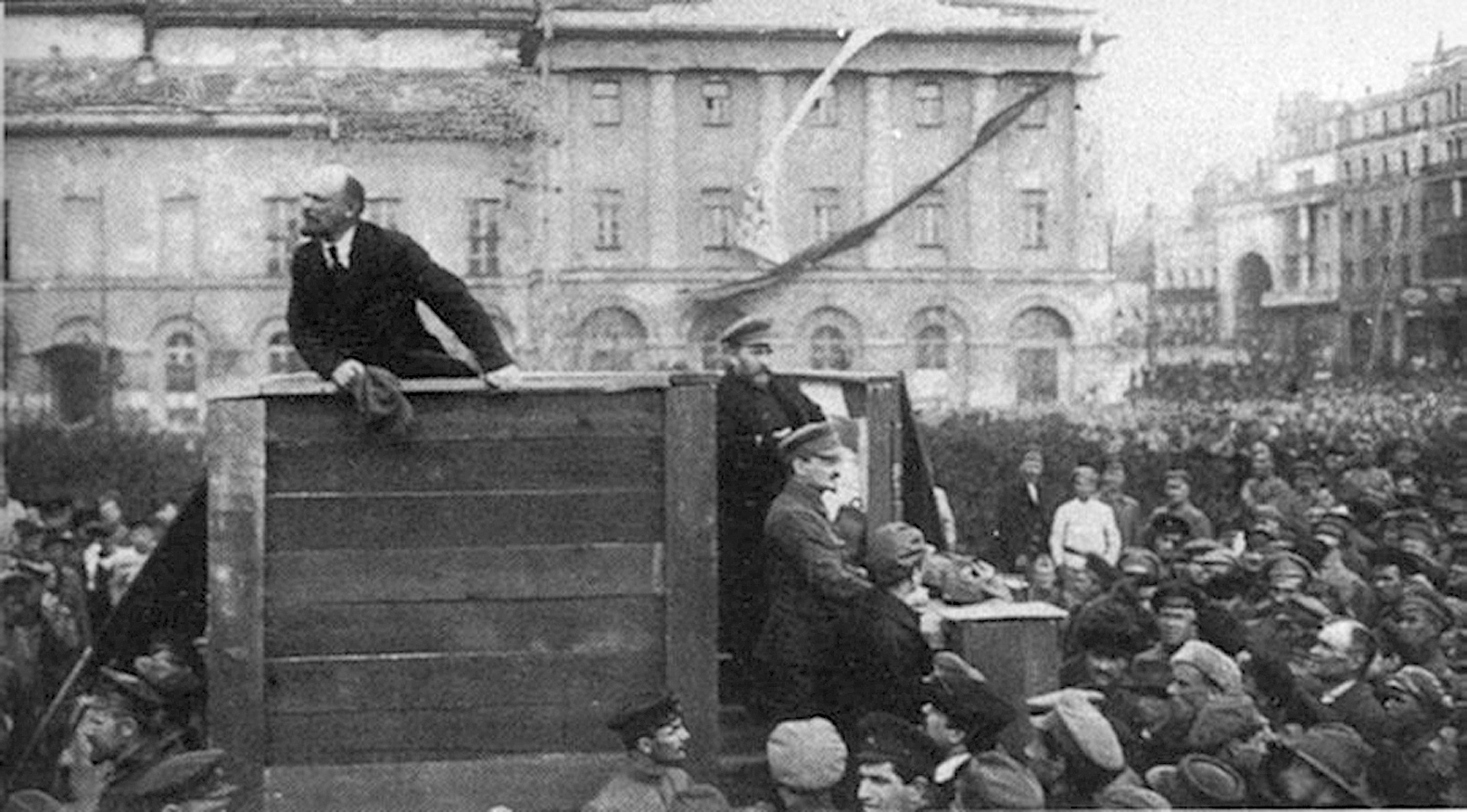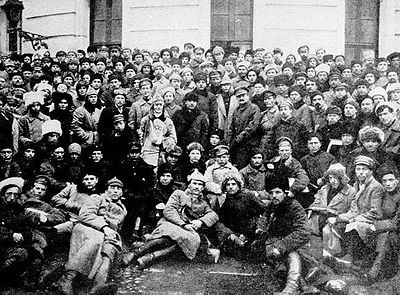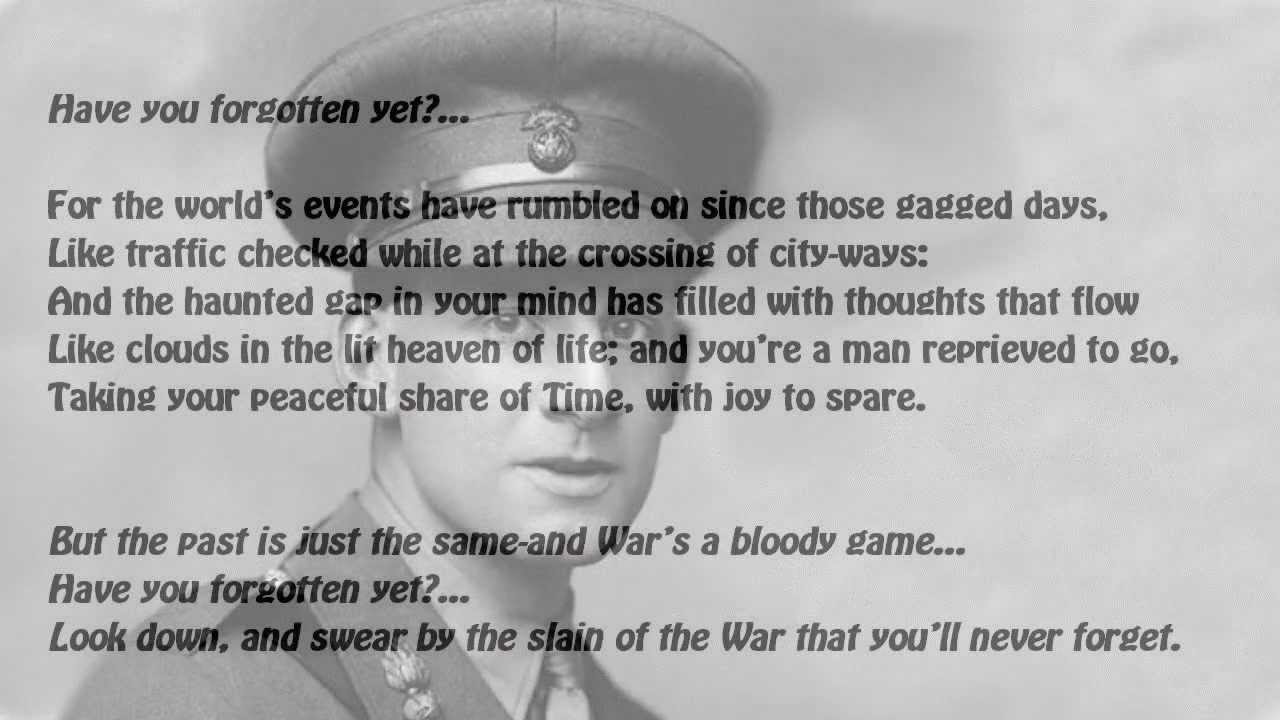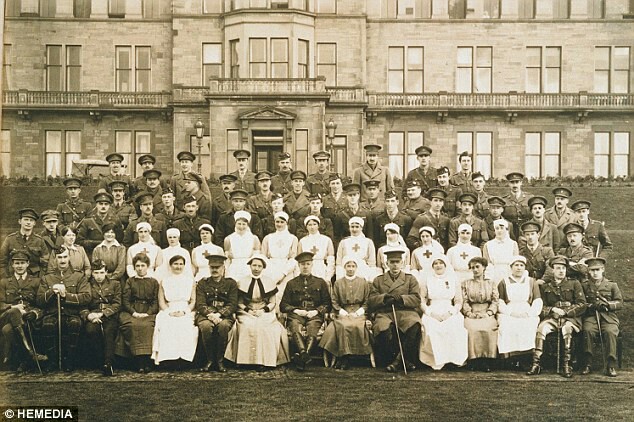Bolsheviks Gain Strength in Russia
A Poet Speaks Out in Britain
Special to The Great War Project
(25 June) In Russia on the Eastern Front, “the summer of 1917 was a chaotic one,” reports historian Adam Hochschild.
“Russian troops were killing their officers or replacing them with soldiers’ soviets, and by the hundreds of thousands they kept on leaving the front. History had never before seen an army dissolve on such a scale.”

Lenin in Petrograd
Political chaos reigned in Petrograd, Russia’s capital. Reports Hochschild, “there were more strikes and stormy meetings as the Provisional Government” – remember the Tsar was overthrown earlier in the spring – “tried to corral the Bolsheviks and other radical sects into continuing the war.”

Russian communists gather in Petrograd
In Petrograd soldiers were marching against the war shouting, “Down with capitalism,” and “Stop the war.“ By then,” Hochschild writes,
“a Bolshevik takeover was on the way.”
Anti-war activists in London tried to bring that spirit to Britain hoping to spark a similar outbreak of sentiment against the war. Activist Sylvia Pankhurst, who ran a radical newspaper in London, published appeals, urging soldiers to lay down their arms. She published “critical letters from soldiers at the front,” reports Hochschild.
“Her newspaper was the first to publish a statement unlike any the war had yet seen —
an eloquent avowal from a front-line officer and a highly decorated one at that, declaring his intention to stop fighting.”
Writes Second Lieutenant Siegfried Sassoon, “I am making this statement as an act of willful defiance of military authority, because I believe that the War is being deliberately prolonged by those who have the power to end it…I believe that this War, upon which I entered as a War of defense, has now become a War of aggression and conquest.”

Siegfried Sassoon and his poetry
Sassoon was a much-decorated soldier – he carried a wounded man to safety under heavy fire — who had already published a note-worthy book of anti-war poetry. He came also from an eminent family in Britain with a cousin who was a member of parliament.
Sassoon was sent back to England after being shot in the throat.
Sylvia Pankhurst’s newspaper Workers’ Dreadnought published Sassoon’s statement. But government agents raided her offices and seized one hundred copies of the letter.
Sassoon expected a court-martial, which would give him and others the opportunity to denounce the war to a much larger audience. “A high-profile trial of a decorated officer who had seen his men die,” writes Hochschild.
“They would wait in vain, for…
the last thing the government wanted was an upper-class war hero turned public martyr.”
“A breach of discipline has been committed,” said a War Office spokesman about Sassoon’s defiant open letter. But no disciplinary action has been taken, since Second Lieutenant Sassoon has been reported by the medical board as not being responsible for his action…
“as he was suffering from nervous breakdown.”
“Far from being thrown in jail,” reports Hochschild, “he was ordered to wait in a hotel room in Liverpool.”
He threw his Military Cross into the River Mersey, but no one was there to see this gesture, and it went unreported.

Craiglockhart War Hospital in Scotland.
Sassoon was then sent off to Craiglockhart War Hospital in Edinburgh “to the comfortable surroundings of a rehabilitation hospital for shell-shocked officers in Scotland.”

this is so timely! so tragic!
Thanks for your comment Cynthia. Great to hear from you and know you read my stuff.